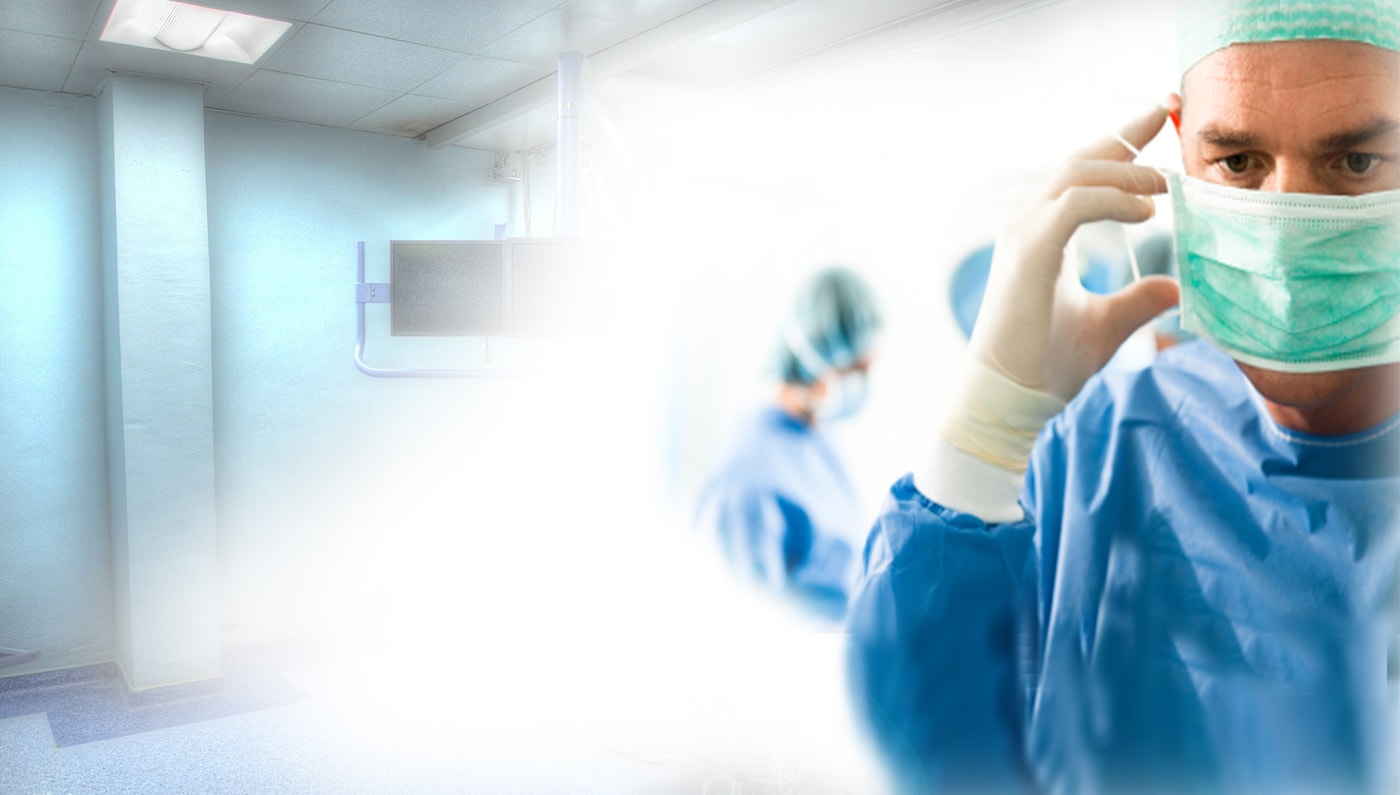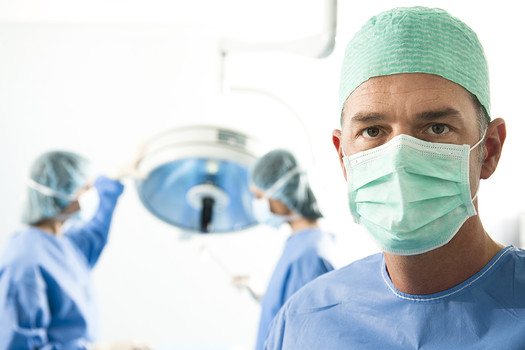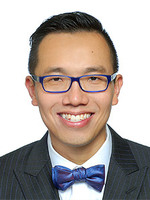
DR LAI JIUNN HERNG |
||
Place of Practice |
LAI ENDOSCOPY & COLORECTAL CENTRE |
|
Practice Address |
3 Mount Elizabeth, Tel: (65) 6737 0027 |
|
Practice Website |
||
Specialty |
Consultant General Surgeon |
|
Qualifications |
MBBS (Singapore), MRCSEd (Surgery), M. Med (Surgery), FRCSEd (General Surgery) |
|
About Dr Lai
Dr Lai Jiunn Herng is the Director and Consultant Surgeon at LAI Endoscopy & Colorectal Surgery in Mount Elizabeth Medical Centre (Orchard), Singapore. He specialises in colorectal surgery, endoscopy and proctology. His subspecialties include minimally invasive and robotic colorectal surgery, advanced endoscopy and, new techniques in piles and anal fistula surgery. He treats colorectal cancer with minimally invasive techniques, which comprise advanced laparoscopic and robotic-assisted colorectal resections, single port laparoscopy and trans-anal endoscopic operations.
Dr Lai honed these skills during his one-year HMDP Fellowship in Hong Kong. He widened his repertoire in recent years to include endoscopic mucosal resection, advanced pelvic surgery and new techniques for complex fistula-in-ano. His recent publications include reviews on the development and current status of laparoscopic colorectal surgery; as well as innovative advances and minimally invasive techniques in anal fistula surgery.
Dr Lai obtained his Bachelor’s degree in Medicine and Surgery (MBBS) from the National University of Singapore in 1998. He went on to obtain his Membership in Surgery from the Royal College of Surgeons of Edinburgh (MRCSEd) in 2004, and received his Master of Medicine in Surgery (M.Med) from the National University of Singapore in 2005. He completed his advanced surgical training and was awarded the Fellowship in General Surgery from the Royal College of Surgeons of Edinburgh (FRCSEd) in 2009. His interest also led to a ‘Diplôme d’Université de Chirurgie Laparoscopique’ (Diploma of Laparoscopic Surgery) from the University of Strasbourg, France in 2010. Dr Lai completed a one-year Singhealth Health Manpower Development Programme (HMDP) Fellowship in Laparoscopic Colorectal Surgery at the University of Hong Kong, Queen Mary Hospital in 2012.
Specialized Services
COLONOSCOPY/GASTROSCOPY:
Colonoscopy and Gastroscopy are scope procedures used to assess the large intestine (colon and rectum) and stomach for common symptoms like blood in stools, irregular bowel habits, abdominal pain and bloatedness. The interior of the intestine and stomach is visualised with a high definition camera at the end of a flexible fibre-optic scope tube which is manoeuvred by the expert endoscopist for diagnosis and treatment.
Piles:
Piles, also known as haemorrhoids, are naturally occurring anal cushions that help with stool control. Haemorrhoids cause bleeding, pain and swelling when they are diseased, often as a result of hard stools, straining and constipation. Treatment of piles include use of medications, rubber band ligation and surgery by a specialist.
polyps: emr, teo
Colon polyps are growths from the intestinal lining and are precursors of colon cancer. They are commonly detected during colonoscopy and removal of polyps is the best means of cancer prevention. Polyps are usually removed by the use of instruments during colonoscopy; this is called polypectomy. Large colon and rectal polyps may require the use of specialised techniques called Endoscopic Mucosal Resection (EMR) and Trans-anal Endoscopic Operation (TEO), respectively.
anal fistula, abscess, fissure:
Anal fistula, abscess and fissures are common problems causing anal pain. Anal fistula and abscesses are caused by infection within the glands of the anal canal, that often require surgical treatment by the colorectal surgeon for cure. Anal fissure is an anal tear that can result from constipation and hard stools, which results in severe pain on passing motion with muscular spasm. Non-healing fissures will need minor surgery to relieve pain and aid healing.
laparoscopic, robotic surgery:
Laparoscopic or key-hole surgery involves the use of a camera and instruments inserted into the abdominal cavity via a few small incisions to visualise and treat common conditions like appendicitis, gallstones, and colon cancer. There is less pain, and faster post-operative recovery compared to traditional open surgery. Robotic surgery uses small robotic instruments which mimics the action of the human hand, and a robotic camera that can visualise the surgical field in 3D. Robotic rectal cancer surgery can enhance the surgical precision and minimise the potential side effects of surgery.
colorectal cancer:
Colorectal cancer is the most common cancer in males and females in Singapore. It is one of the few cancers for which a cure is possible when diagnosed early. The key is in early detection by colonoscopy screening and assessment of symptoms like blood in stools and change of bowel habit. The current standard of treatment is surgery to remove the cancer, with addition of chemotherapy and/or radiotherapy for more advanced cancers.
Appendicitis, diverticulitis:
Appendicitis is an inflammation of the appendix which can progress to severe infection of the abdomen if left untreated. Treatment involves surgery to remove the appendix to minimise the chances of perforation and abscess (pus) formation. Appendicectomy can be done usually with laparoscopic (key-hole) technique with fast recovery. Diverticulitis is the inflammation of colonic diverticulum, which are outpouching of the colonic lining due to age, inherited factors and propulsive force of the colon. This can often be treated with antibiotics and a short hospital stay for mild cases.
constipation:
irritable bowel syndrome:
Irritable Bowel Syndrome (IBS) is a spectrum of gut movement disorder that exhibits a variety of symptoms from abdominal pain, irregular stools frequency and stool forms which affect patients’ quality of life and can mimic the same symptoms as gastrointestinal cancer, ulcers and abdominal inflammation. Diagnosis of IBS requires a thorough assessment by a specialist which can include endoscopy and abdominal scans.
hernia:
Common hernias seen in surgical practice include inguinal and abdominal wall hernias. Inguinal hernia starts as a lump in the groin and is usually a result of inguinal wall weakness that can be related to heavy work and lifting. The intestines can be pushed out of the abdominal cavity into the hernia sac, causing pain and discomfort. Surgery for hernia repair is done to treat the wall weakness, and prevent strangulation of the intestines in the hernia opening. Specialised techniques used include use of soft hi-tech synthetic mesh or nets to strengthen the wall, as well as the use of key-hole techniques in selected patients.
gallstones:
Gallstones are formed in the gallbladder from bile, cholesterol and calcium deposits. They are a common cause of upper abdominal pain, usually on the right side, and after a heavy meal. Gallstones can also cause infection of the gallbladder, called cholecystitis, as well as blockage if the bile ducts. Laparoscopic cholecystectomy is a commonly performed key-hole operation to remove the gallbladder and associated stones once a patient develops recurrent pain and infection or blockage.
skin lumps:
Common skin lumps that appear on the body include sebaceous cyst, lipoma, skin infections or abscesses. Sebaceous cysts are collections of sebum (secretions which keep hair follicles moisturised) formed from blockage of sebaceous ducts. They can be removed with minor surgery to prevent recurrent infection. Lipoma is a benign (non- cancerous) growth of fat cells that commonly occurs in the arms, legs and trunk of the body. They are soft, usually painless and can be left alone when small. Surgery to remove large or symptomatic lipomas can be done in safe and simple fashion. Skin abscesses and infection will require surgical drainage for faster healing.
Appointments/Affiliations
- Director and Consultant Surgeon, LAI Endoscopy & Colorectal Surgery
- Head of Overseas Operations, and Specialist Surgeon, HC Surgical Specialists
- Honorary Treasurer, Society of Colorectal Surgeons (Singapore)
- Board of Directors, Asia Pacific EndoLaparoscopic Surgery Group (APELS)
- Lifetime Member, Endoscopic and Laparoscopic Surgeons of Asia (ELSA)
- Faculty (Part-Time Tutor), DukeNUS Graduate School of Medicine (Surgical Programme)
- Member, Singapore Cancer Society Colorectal Cancer Awareness Month (CCAM) Committee
- Instructor, Advanced Cardiac Life Support Course (ACLS)
Past Appointments/Affiliations
- Consultant, Department of Colorectal Surgery, Singapore General Hospital (2011 – 2016)
- Endoscopy Platform Director, SingHealth-DukeNUS Surgical Skills Centre (2013 - 2016)
- Immediate Past President, Society of Colorectal Surgeons (Singapore)
- Clinical Senior Lecturer, Yong Loo Lin School of Medicine, National University of Singapore
- Faculty and Mentor, DukeNUS Graduate School of Medicine (Surgical Programme)



 Welcome to Singapore's directory of Specialist Doctors and Surgeons in private practice. With specialists from across all medical and surgical fields conveniently located islandwide, SingaporeDoc will help you find the right specialist.
Welcome to Singapore's directory of Specialist Doctors and Surgeons in private practice. With specialists from across all medical and surgical fields conveniently located islandwide, SingaporeDoc will help you find the right specialist.





